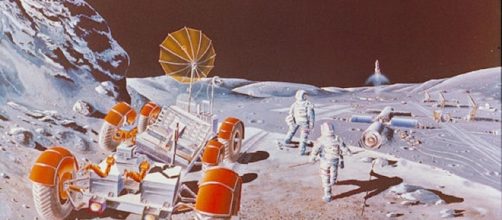As inevitable as night following sunset, the announcement by Vice President Pence that America is headed back to the moon on the way to Mars has brought out the naysayers. A case in point is a recent column in the Washington Post by David Van Drehle entitled “The Mission to Mars is One Stupid Leap for Mankind.” The piece, with very few changes, could have been run in 1965 to attack the Apollo program or in 1990 or 2005 to oppose the space exploration initiatives of the two Presidents Bush. It trots out all of the old and long-discredited arguments against human space exploration.
So, for a new generation, we have to deal with them once again.
Robots are better than humans in exploring space
The supposition that robotic probes can explore space with more dexterity and at less cost than humans has been around since the beginning of the space age. The argument has raged for decades. However, the British Royal Astronomical Society did an exhaustive study on the question and concluded, in 2005, that space exploration can only “be achieved by human exploration on the Moon or Mars, supported by appropriate automated systems.” The science, to coin a phrase, is settled.
Space is a hazardous place and no one wants to live there
To be sure, places like Mars are inhospitable to humans in ways that most places on Earth are not.
Human ingenuity, however, will find ways to allow people to live on the moon and Mars, ultimately turning the latter into a terraformed second Earth.
There is nothing of value in space, especially where humans are concerned
One only has to look at a recent report by those starry-eyed science fiction fans at Goldman Sachs to debunk this notion. The investment banking firm has concluded that asteroid mining is set to be a trillion-dollar business. The process of extracting platinum group metals from an asteroid is likely to involve both humans and robots, the former to monitor and fix the latter as needed, something that can’t be done remotely over millions of miles from an Earth facility. By the way, all that mineral wealth, which could spark a space-based industrial revolution, more than justifies spending more money on space exploration.
We should spend more time preserving the planet than going to other worlds
The environment vs. space exploration is the most pernicious and aggravating argument of all. Space naysayers used to tout poverty programs as an excuse to cut funding for space exploration. Now it’s the environment. One would think that a civilization as advanced as ours can walk and chew gum at the same time. One would also ponder the notion of how space technology could be employed to preserving and improving the home planet.


